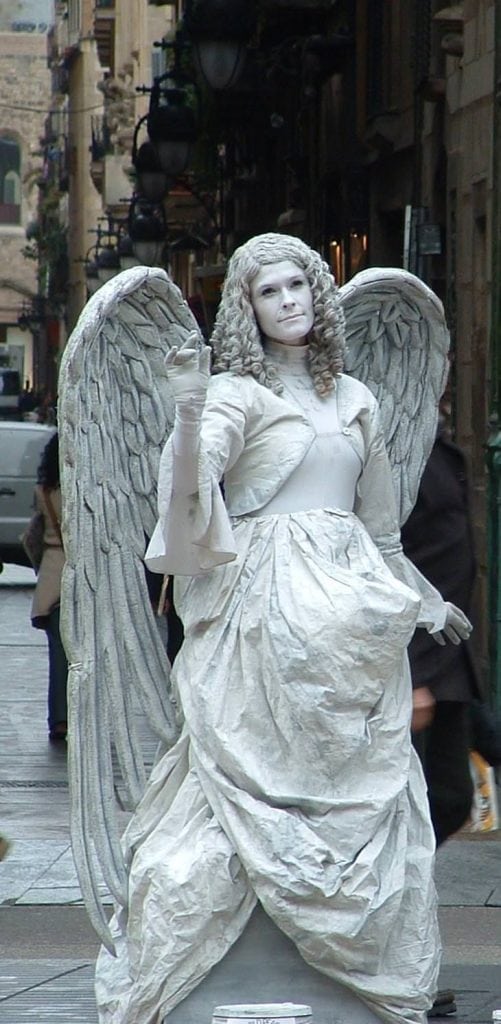(A Satirical Erotic Science Fiction—I think)
Sara
Eiric picked up his head and stopped typing when Sara came in the room.
Earlier he had a recollection of hearing her moving in the kitchen and had smelled coffee brewing. To Eiric, just the smell of coffee seemed almost as effective as drinking it.
 Even though most writers had long since abandoned keyboards in favor of touch-screens, holographic keyboards and voice recognition, Eiric still liked the rhythmic clicking and the gliding hand movements that came with the use of a keyboard—and his old fashioned cordless mouse. In another life he fancied himself a gifted piano player. If he could have found a reliable Smith-Corona word processor typewriter he would probably have used one of those—but they were scarce—he saw one once in a museum—but still keeps his eye open for one at the Salvation Army.
Even though most writers had long since abandoned keyboards in favor of touch-screens, holographic keyboards and voice recognition, Eiric still liked the rhythmic clicking and the gliding hand movements that came with the use of a keyboard—and his old fashioned cordless mouse. In another life he fancied himself a gifted piano player. If he could have found a reliable Smith-Corona word processor typewriter he would probably have used one of those—but they were scarce—he saw one once in a museum—but still keeps his eye open for one at the Salvation Army.
Eiric was an early morning person. Getting up early and being hard at work before anyone else got up was pretty normal for him. He was accustomed to Sara moving gracefully into the room with hot coffee in his favorite mug—the one he had found at the Salvation Army years ago. She didn’t speak a word but smiled sweetly as she placed the coffee next to the keyboard.
He loved the way she bent over his desk so that he could see down her frilly white camisole. She smelled like sandalwood and her hair was still sleepy.
“Are you hungry,” she asked him?
“In a bit—not just now,” he answered her—and then took a sip of his coffee.
She smiled at him and turned and walked out of the room—waving at him with her pretty little butt. She wore robin’s egg blue silk panties that covered most of her butt—which was exactly what he liked. He sure loved that butt—and those long perfect legs. He gave a deep sigh, put his coffee back down and smiled to himself as he went back to typing. She would have brought him his coffee naked if he had wanted her too. He had friends that would have done that, that did do that, but he preferred that Sara keep her nakedness hidden—mysterious. It somehow charged his senses and gave his mind something to dwell on—to fester—the way only delayed gratification can fester. He knew that in a sense he was just teasing himself, and that it was all just a “game”—but isn’t all of life a game?
The ability to literally create one’s dreams and live them fully was a relatively new advance for human beings and Eiric was taking full advantage of it. He was at the forefront of its development and was deeply involved in its evolution. He and several thousand other writers were participants in one of the greatest human experiments of all time—although at this point in time it was hardly an experiment. Things had progressed well beyond a state of “experiment” to a state of “being”—redefining what it meant to be human.
Historically there had been considerable question as to what it meant to be human anyway. The vast number of wars, divorces, family feuds, murders, religions and suicides painted a dismal and sometimes grizzly picture of what it previously meant to be human. Eirik read the old books—watched the old movies—he knew very well what life used to be like.
Sara and Eiric had been together now for almost a year. Thus far, it was, by far, the best relationship he had ever had. He really appreciated everything about her—he couldn’t imagine how it could be better. He knew from past experience though that it could be better—it always got better. Isn’t that the nature of all relationships? We learn, we grow, and we get better with the next one—right?
Eiric knew that it had not always worked this way for everyone—people used to be slow learners—if they learned at all. Some seemed to reap some sort of inexplicable pleasure by repeating old unproductive patterns. These qualities had for the most part been weeded out of human behavior years ago—long before Eiric was born. He read about it in books, but could only intellectually picture it—and why would anyone want to go there now?